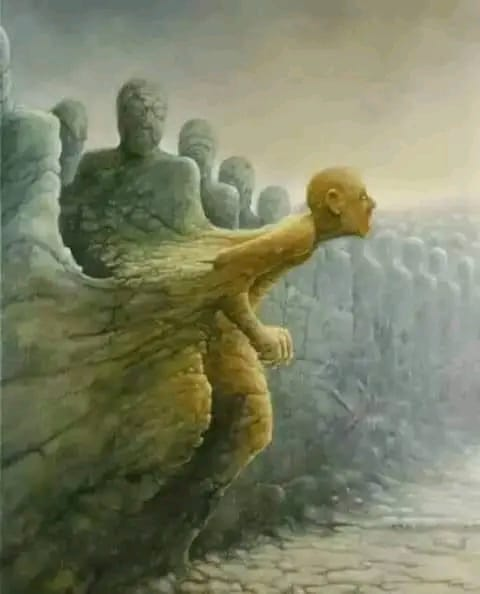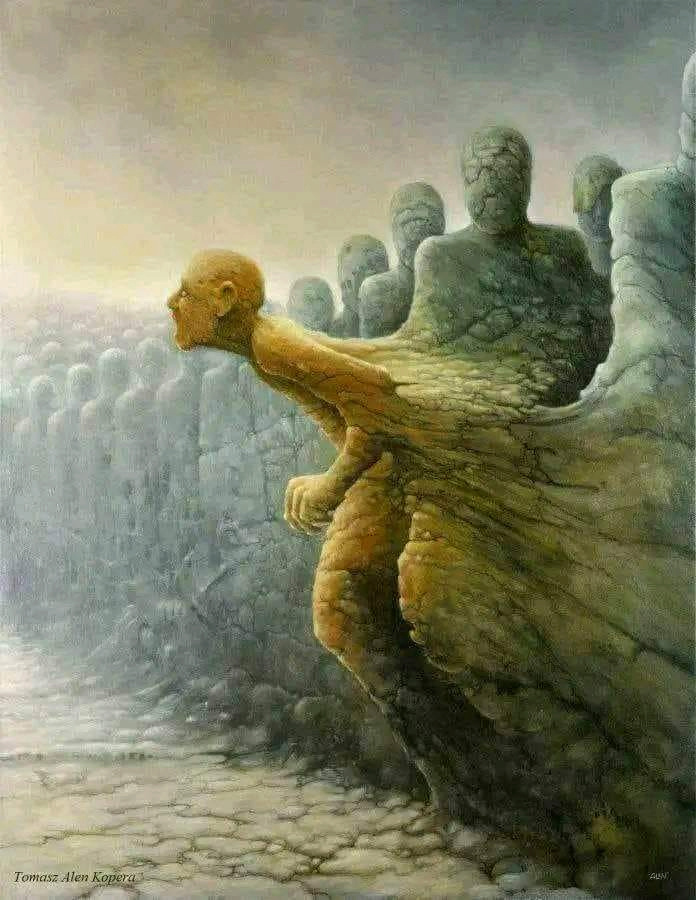Painting "Leaving the flock"

Polish artist Thomas Kubera's painting "Leaving the Herd".
It explains the extent of the conflict that the individual suffers from and the moment he departs from the path drawn by the (collective mind)
Here the herd is made up of people who are all the same.
The same absent features, the same sizes, and the same orientation.
It is a wonderful painting that expresses how difficult it is for an individual to be liberated from the herd culture imposed on him by a society of ignorance and backwardness.
In the picture, a person appears to be trying to become independent and escape from slavery and the control of the herd. The man is screaming in pain and his facial expressions are filled with extreme suffering, but he resists with determination and stubbornness, and his eyes are fixed on something he sees far away, which may be his guiding star and his big dream that he seeks to achieve in order to become a human being. Free and distinct from the herd.

The artist here means that they think and act in the same way to the point that their personal distinction is lost and disappears in the middle of the herd, to the point that the herd itself is made of snow, meaning frozen, hardened and cold, devoid of life and devoid of feelings, as a metaphor for the cessation of their intellectual development. As for the person who began to show independent features and began to form... He has a body different from the herd, and the heat of life began to flow through his body as if it were a burning flame in the dark sky, meaning that he decided to have an independent thought, opinion, and style, and decided to break free and be liberated from the control of the herd, but this person has a bigger problem, which is that the herd will not leave him alone because of his blatant rebellion in... He suffers while trying to swim against the current, so the herd will try everything in their power to bring him back, cutting into his skin, freezing him again, and pulling him violently toward him.
Source: websites

